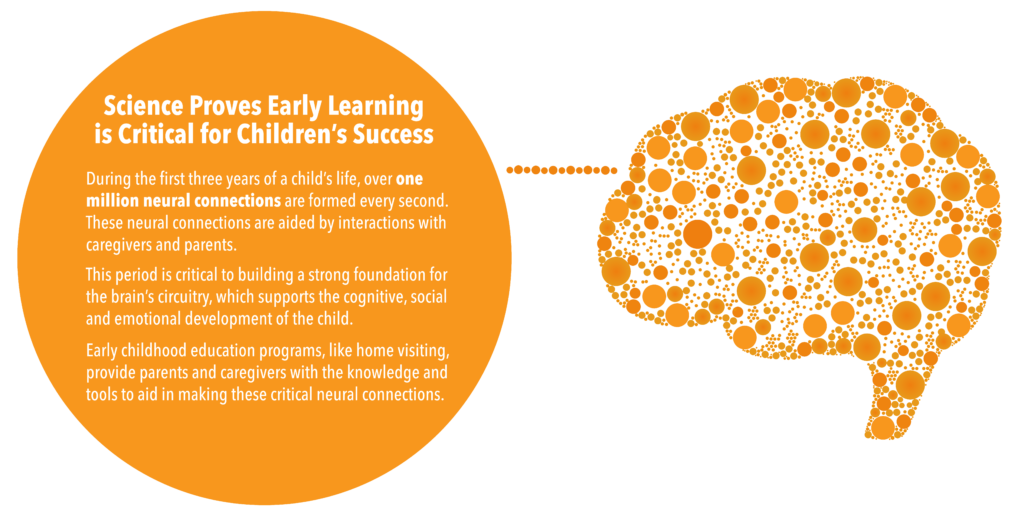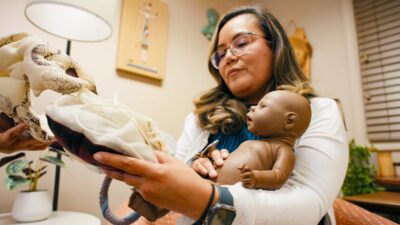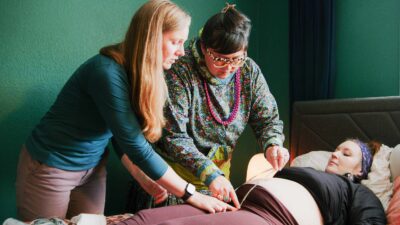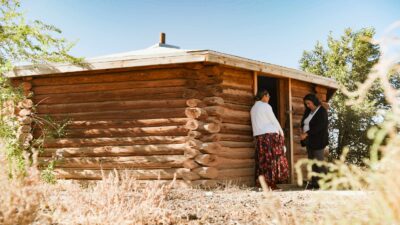This post is also available in: Español (Spanish) Kreyòl (Haitian Creole)
This is part four of our New Mexico early childhood education series.
Despite the challenges from the pandemic, New Mexico’s Early Childhood Education and Care Department (ECECD) continues to work on its mission to provide equitable access to high-quality, community-centered, early education and care programs to support the development of children to prepare them for success in school.
New Mexico Early Childhood Education and Care Secretary Elizabeth Groginsky has rooted racial equity and community engagement as the primary principles for establishing the department’s priorities, while also developing an aligned system of workforce development.
Secretary Groginsky has spent hours talking with parents and guardians, early childcare providers and teachers, while also listening to communities for answers and guidance. “I wanted to learn right away about the diversity of all New Mexico’s communities. Their deep-rooted traditions, and culturally and linguistically generational upbringings,” she says. “Most importantly, I wanted to learn about their hesitations and skepticism of home visiting programs and sending their very young children to a center-based facility.”
“Our children are far too important. They are our most valuable asset, and the investments we make in them, particularly in their earliest years, will benefit us all in the long term.”
Elizabeth Groginsky, New Mexico Early Childhood Education and Care Secretary Tweet
While the impacts of the coronavirus halted these in-person conversations, the relationships and the invaluable information gathered are now proving more important than ever. It guided how culturally and linguistically appropriate programming and providing equal education and care opportunities to non-English-speaking families would be at the forefront of the department’s approach to serving New Mexico’s earliest learners.
For the 19 Pueblos, 2 Apache Tribes and the Navajo Nation of New Mexico, language revitalization is critical to maintaining their cultures, long protected by their earliest ancestors. Language plays an important role in Tribal governance and the sovereignty that tribes also fight to protect. Increasingly, early childhood education advocates recognize the importance of incorporating language and culture into ECE curriculum affirming the identity of every child.
As a result, Jovanna Archuleta of Nambe Pueblo is the first-ever Assistant Secretary for Native American Early Education and Care, a position established in the ECECD, honoring the voices and guidance from the Pueblos, Navajo Nation and Apaches cultural traditions. Archuleta explains, “There is a lot of work to be done and as Vu Le said in the Kellogg Foundation Convening (WKKF’s New Mexico Grantee convening held virtually in June 2020).
“We have a lot of things to unlearn. We have the opportunity to start fresh and do things right while listening to the tribes' definition of early childhood.”
Jovanna Archuleta Tweet
This also holds true for New Mexico’s immigrant and refugee communities, where maintaining their home language alongside learning English plays a critical role in children’s ability to learn and adjust to their new home.
The brains of very young children are programmed to learn language, with the ability to learn multiple languages.
Research has shown that the first three years of a child’s life are critical to building a strong foundation for the brain’s circuitry, which supports the cognitive, social and emotional development of the child.
Secretary Groginsky and the department understand the vital importance of investing in comprehensive birth-to-5 early childhood education as a powerful and cost-effective way to boost a child’s development and expand opportunity in adulthood.
As a result, the department now oversees the state’s management and growing investment in the following programs, previously held in several other state departments, including:
-
Pre-kindergarten and early pre-kindergarten
-
Child care
-
Home visiting
-
Individuals with Disabilities Education Act – Part C – early intervention
-
Head Start State Collaboration
-
Food and Nutrition Programs
-
Families FIRST
Even as the pandemic continues, the department continues to work with nonprofit partners, childcare providers, parents and community leaders, and pursue efforts to introduce new programs and improve existing ones.
Together, they are helping to raise the profile of the early childhood workforce, expand equitable access of pre-K to three and four-year-old’s and invest in local talent through workforce development and a curriculum that affirms every child’s identify and culture.
With the inequities that the pandemic exposed, they are critically examining institutional and structural policies and practices to improve outcomes for children so when we’ve weathered the pandemic, the child care system will be ready to greet many more children.
Background Information
Secretary Groginsky comes to New Mexico from Washington, D.C., where she was assistant superintendent of early learning for the District of Columbia since 2014. In that role, she administered a $160 million annual budget that funded programs to ensure equal access to quality services for the District’s most vulnerable children and their families.
New Mexico Early Childhood Education Series
"The Next Generation: New Mexico’s Greatest Resource"
Check out the other stories about the early childhood system in New Mexico.












Comments